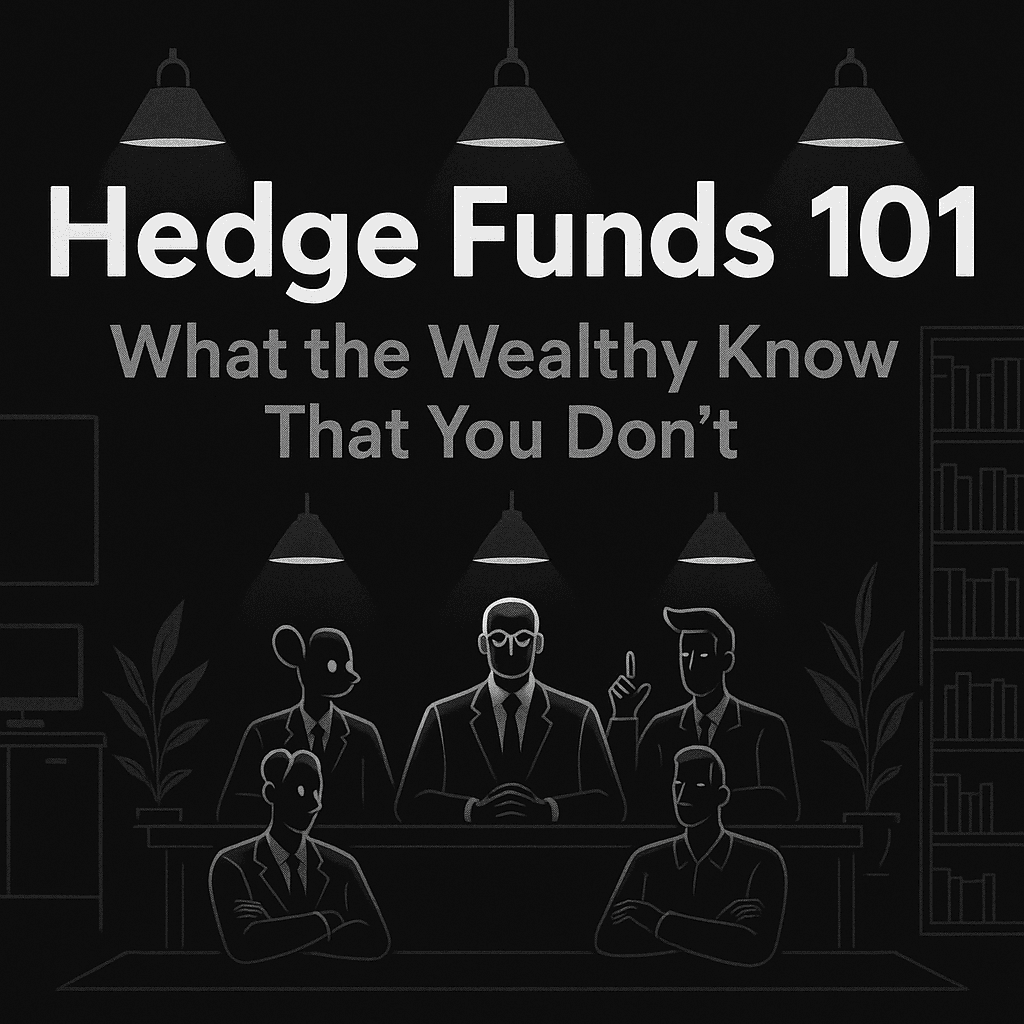Ever hear someone talk about hedge funds like they’re part of some secret financial society? You nod politely, but deep down you’re thinking, “Is that a hedge I can plant in my yard?” Relax. You're not the only one. Hedge funds sound complicated because they kind of are. But once you break them down, they’re less intimidating—kind of like realizing the fancy French menu just says "cheeseburger."
Let’s dive into what hedge funds are, how they work, why the rich love them, and whether you should care.
What is a Hedge Fund?
Imagine an exclusive VIP investing club where the bouncer only lets in people with seven-figure bank accounts. That’s a hedge fund. It’s a private pool of capital managed by professionals who have more investing tools than Batman has gadgets.
The goal? Beat the market using all sorts of fancy strategies. They might hedge risk (hence the name), but many just go all-in to chase high returns. Think of it like poker at a high-stakes table—the buy-in is steep, but the payout can be massive.
How Do Hedge Funds Work?
Step 1: Rich folks or institutions invest their money.
Step 2: Hedge fund managers deploy that money into all kinds of assets—stocks, bonds, derivatives, commodities, you name it.
Step 3: If the strategy works, everyone wins. If it doesn’t...well, hopefully you didn’t need that yacht.
Hedge funds use long/short strategies, leverage (basically investing with borrowed money), and derivatives (those mysterious things that even some MBAs pretend to understand). They’re nimble, aggressive, and often secretive. Transparency is not their thing.
Also, they’re usually set up as limited partnerships. Managers call the shots. Investors just provide the cash and cross their fingers.
The “2 and 20” Fee Model: Because Yacht Fuel Ain’t Free
Here’s where things get spicy. Most hedge funds charge a “2 and 20” fee:
- 2% annual management fee (yes, even if they lose money)
- 20% of any profits (a sweet reward for winning big)
That means even a mediocre manager with a good year can afford a new sports car. Investors grumble about this fee structure, but when a fund is on fire, they gladly pay.
Why the Wealthy Love Hedge Funds
Aside from the fact that saying "I invest in a hedge fund" sounds fancy at cocktail parties, here’s why the ultra-rich buy in:
- Access to unique strategies: From global macroeconomic bets to obscure emerging markets, hedge funds venture where most dare not tread.
- Higher risk tolerance: The rich can afford to take a few Ls. Losing $1 million hurts less when you have $99 million left.
- Diversification: Hedge funds invest in stuff like distressed debt or crypto derivatives. That’s diversification on steroids.
- Social cred: Let’s be honest—it’s a status thing.
Popular Hedge Fund Strategies (With Fancy Names!)
Here are the greatest hits:
- Long/Short Equity: Buy low, sell high. Also: short-sell high, buy low. Profit both ways. Clever, right?
- Global Macro: Big bets on countries, currencies, interest rates. Basically, economics meets gambling.
- Event-Driven: Invest in companies dealing with mergers, bankruptcies, or scandal. If it sounds like a soap opera, that’s because it is.
- Quant Funds: Run by PhDs and algorithms that trade faster than you can say "NASDAQ."
Risks, Fails, and Oopsies
Hedge funds can be risky. Like roller-coaster-without-a-seatbelt risky. Notable flops include Long-Term Capital Management and Archegos Capital—both imploded in spectacular fashion.
And guess what? More than half of hedge funds underperform the broader market in a typical year. All that complexity doesn’t always pay off. Sometimes simpler is better. Like grilled cheese.
Should You Invest?
If you’re not an accredited investor (net worth over $1 million or high annual income), you can’t even get in. Hedge funds have high minimums and lock-up periods, meaning your money is tied up longer than leftovers in the back of your fridge.
But understanding them is still useful. They influence markets, headlines, and how capital flows around the world. Plus, the more you know, the more you can roll your eyes at that guy at the party who mispronounces "derivatives."
Final Thoughts
Hedge funds are not magical money-making machines. They’re complex, often secretive, and only for those with deep pockets. But behind the exclusivity is a fascinating world of strategy, risk, and (sometimes) big rewards.
Now, go forth and casually drop “global macro fund” into your next conversation. You’ll sound brilliant.

